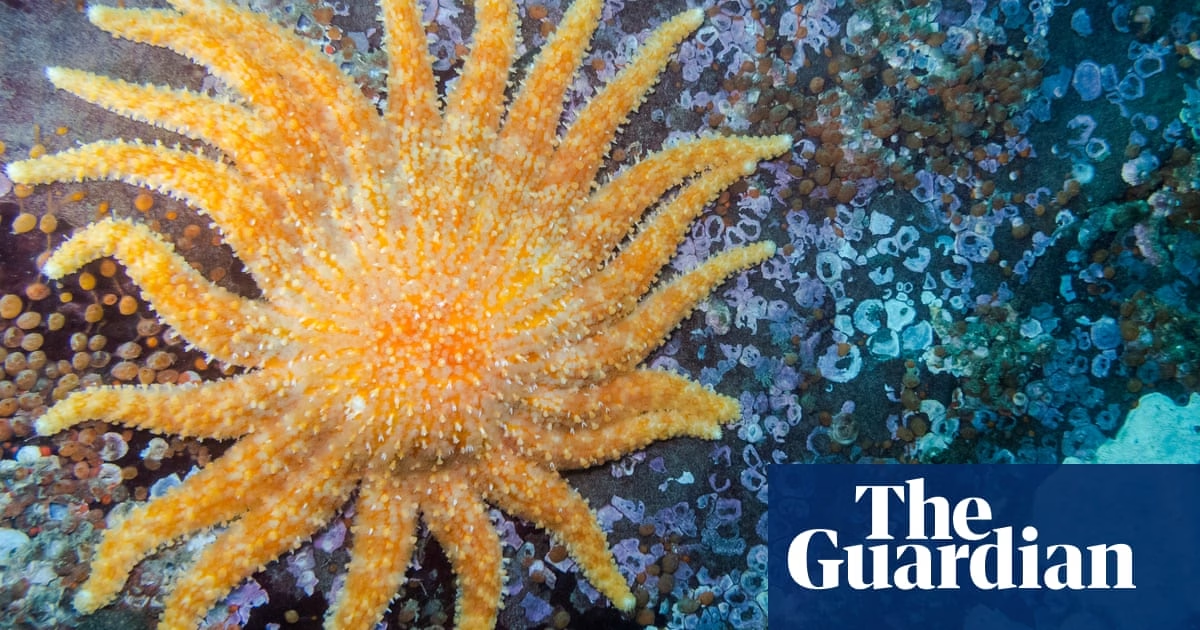A new study has revealed that microplastics and a commonly used pesticide are significantly contributing to the decline of sea star populations in Washington state’s Puget Sound. Researchers are investigating the causes behind a mass die-off of sunflower sea stars in the area. Although the exact correlation between these substances and the die-off is unclear, the study unequivocally found that both elements have harmful effects on juvenile sea stars, which in turn hinders the population’s recovery.
Allie Tissot, a doctoral candidate at Portland State University and co-author of the study, noted that the population levels of sea stars are already alarmingly low. Given the multitude of pollutants, such as microplastics, contaminants, and chemicals present in their environment, it is uncertain what the full impact may be.
The crisis has broader ecological implications. Sunflower sea stars are considered endangered due to a condition known as wasting sea star syndrome, which has disrupted the ecological balance. This affects the marine ecosystem as a decline in sea stars leads to an increase in sea urchins, which threaten kelp forests that are vital for coastal aquatic life.
The pesticide, Imidacloprid, is known for its devastating effects on bee populations and songbirds. While it is set to be banned in the UK, the US Environmental Protection Agency has not yet succumbed to pressure for a similar ban. The study also examined microfibers, a type of microplastic predominantly from clothing and textiles. These microfibers shed during wash cycles and are about one-fifth the size of a human hair.
The pesticide has been found to cause malformations in the sea stars’ digestive systems and disrupt stomach growth, leading to death. Additionally, the microfibers may accelerate unwanted growth in the sea stars, likely because the sea stars can’t absorb sufficient nutrients. While these substances may not directly cause wasting sea star syndrome, they could impede the population’s recovery.
The study highlights the urgency of addressing the wider array of toxins affecting sea stars. It also suggests potential solutions. Oregon’s state senate is contemplating a bill to mandate microplastic filters in new washing machines. Furthermore, there is a proposal under consideration with the federal government to classify the sunflower sea star as a threatened species under the Endangered Species Act, which could lead to restrictions on pesticide use in the region.
Jason Hodin, a study co-author and University of Washington researcher, emphasized the importance of minimizing additional stressors on marine ecosystems, including pesticide run-off and plastic pollution.
Source: https://www.theguardian.com/us-news/2025/mar/26/microplastics-pesticides-sea-stars-washington-state








